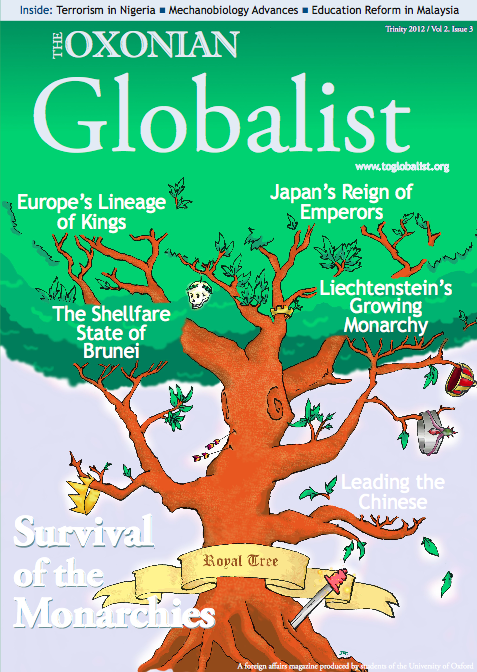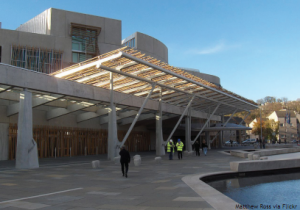CONSTITUTIONAL change appears to be coming to the UK, although not quite as the country had expected when it went to the polls on May 5th. The election, which was anticipated to bring about a minor change in the electoral system, has instigated a chain of events that has the potential to sever a 304-year-old union. While the Alternative Vote (AV) electoral system proposal was defeated 69% to 31%, the Scottish National Party (SNP) in Scotland returned with a majority of the government for the first time in its Parliament’s history. Few predicted this landmark result. From mid-2010 until March 2011, opinion polls had indicated that Labour was consistently ahead. The leader of the Scottish Labour Party (SLP), Iain Gray, seemed confident despite his low profile. A poll for the Herald, in early March predicated a Labour landslide. According to their figures, Labour maintained a 15-point lead over the SNP.
The results that actually came to pass, however, were fundamentally different and brought the future of the United Kingdom’s union into serious peril. The SNP increased their vote share to 45%, gaining a majority for the first time. In the northeast region comprised of Aberdeen, Dundee and the surrounding areas, the SNP won all ten constituency seats. Moreover, they gained a top up seat from the regional list, an event considered statistically impossible when the system was designed. Indeed the voting system, which consists of first-past-the-post (FPTP) constituency votes alongside multi-member Proportional Representation regional votes, was constructed to prevent any single party from gaining a majority. This system envisioned either a minority nationalist government or a unionist coalition of some combination of colours. Up until now, the Additional Member System had done its job efficiently.
A Grey Issue
It was Labour’s election to lose and they lost it spectacularly. In Scotland, the media has singled out Labour leader Iain Gray’s incompetence as a primary factor in this historic result. Dubbed the “grey man” by news media, Gray’s lack of charisma allowed Alex Salmond, leader of the SNP, to dominate the leadership debates in late March and April. Soon after, Labour’s poll ratings began to tank.
The SNP have gained massively from the wider context in which the Scottish Parliament sits. Developments in Westminster have shored up support for both the SNP and Scottish independence. The coalition’s sweeping budget cuts are at odds with the Scottish people’s expectations from their government. While the Conservative-led UK government continues to slash public services for those in England, the SNP government at Holyrood has chosen to protect and expand public services. Prescription charges have been eliminated and the lump sum graduate tax abolished. These changes have been widely welcomed by the Scottish people, who are eager to support the SNP’s bid for a second term.
However, the interests of union and nation seem to be diverging. The public’s support for the Conservatives and Liberal Democrats in Scotland has collapsed. The Conservative leader, Annabel Goldie, lost her constituency seat. The Liberal Democrats have suffered most, with representation diminished from 17 seats to five. The party of government until 2007, the Scottish Liberal Democrats now hold only three more seats than the Greens. These election results suggest that disaffected, unionist voters have shifted their allegiance to the SNP.
The long-term impact of this election remains unclear. Upon gaining a majority, Salmond announced his plans to hold a referendum on Scottish independence. The coalition government at Westminster have announced that they have no intention of blocking this vote. A referendum had been planned for this year, but was abandoned when the previous SNP minority administration realised they had no hope of passing the bill through parliament. However, this obstacle no longer exists. A referendum is an all-or-nothing gamble for the SNP. Their raison d’être is working toward an independently governed Scotland. If the electorate rejects independence, they will reject the party’s underlying ideology. If the electorate backs it, the SNP will be vindicated and will subsequently sweep to power.
Uniting Around Division
Commentators are divided over whether the referendum will pass. Scottish elections are unusual; they are both elections for government and referenda on devolution. SNP support is invariably higher than support for independence. However, if the popularity of the party persists, support for independence will grow.
The political skill of Salmond and the SNP should not be underestimated. The SNP have sought independence since they first entered government. First Minister’s Questions are dominated by retorts from Salmond dismissing Scottish problems as side effects of the union. The schools’ curriculum has been amended to focus more thoroughly on nationalistic periods of Scottish history. SNP policy on Trident, education and the NHS is at odds with UK government policy. With the other parties effectively decimated and directionless after the resignations of the leaders of the SLP and the Scottish Liberal Democrats, Scotland is more vulnerable than ever to Salmond’s slick SNP political machine. The future of Scottish independence depends on how successfully Salmond can convince the Scottish people that their identity and their interest lies only in Scotland.





